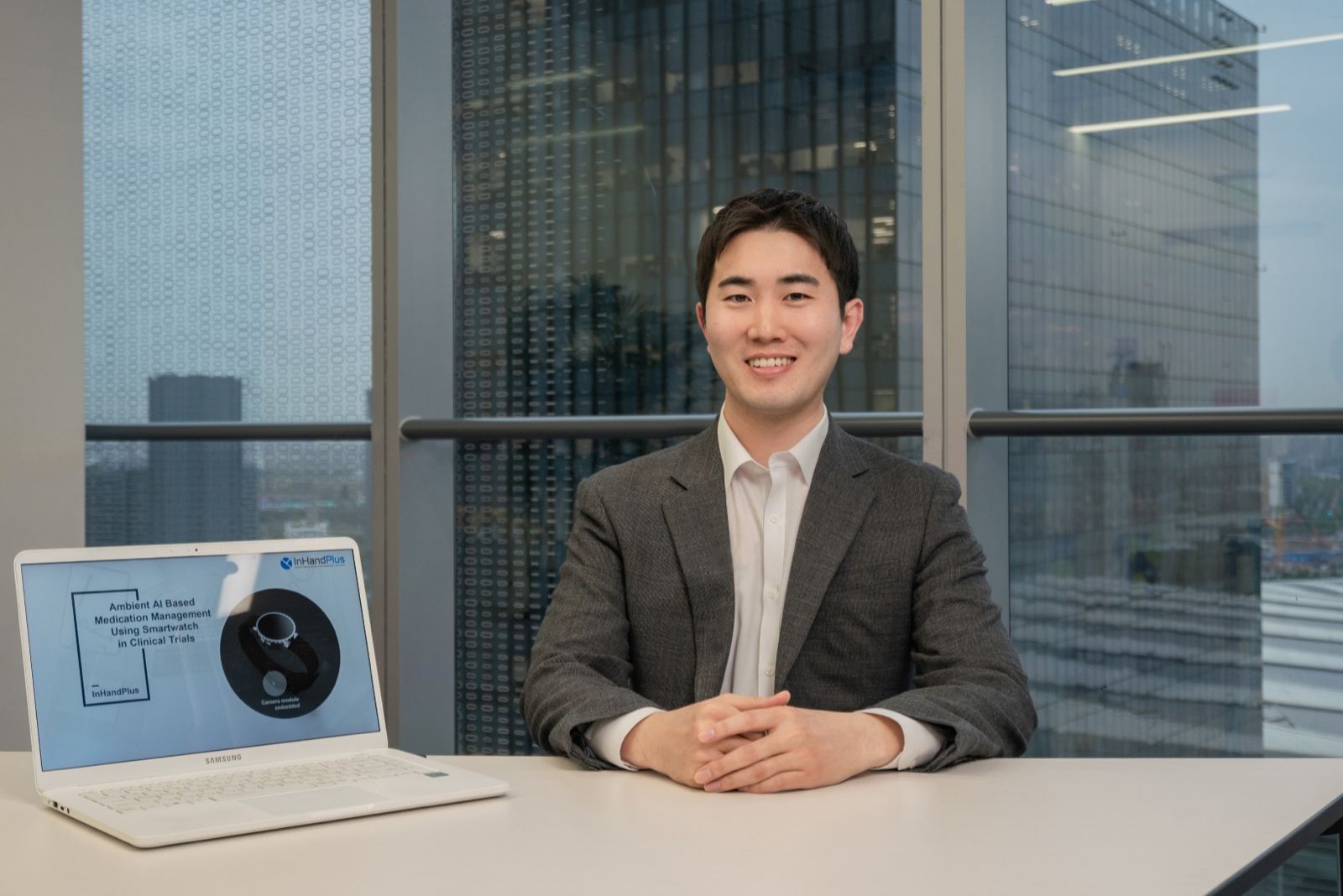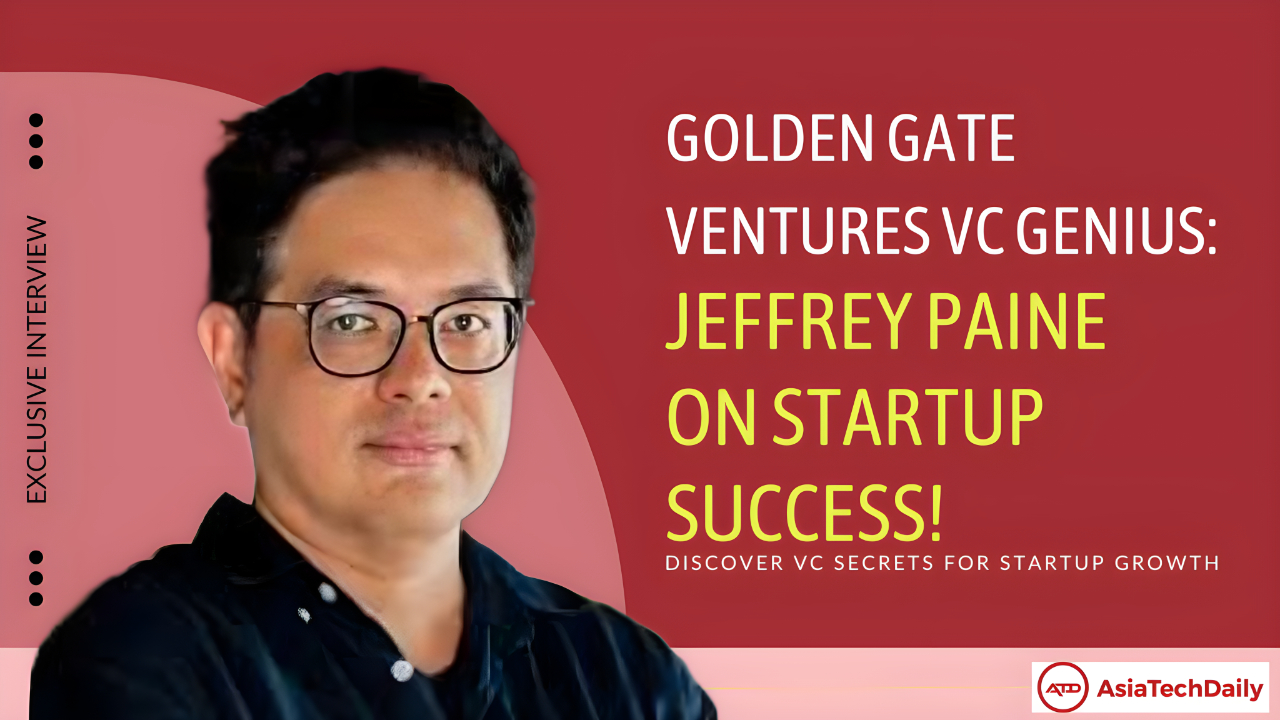AsiaTechDaily – Asia's Leading Tech and Startup Media Platform

How Rohan Gupta Co-Founder And CEO Of QuillBot Raised $4.25M To Make Writing Painless?
Rohan Gupta is the CEO and Co-Founder of QuillBot, a cutting edge NLP startup with millions of users. He holds a B.S. in Finance and an M.S. in Computer Science from the University of Illinois at Urbana Champaign. He is passionate about technology, philosophy, and changing the world.
QuillBot is on a mission to make writing painless. We are starting with our state-of-the-art AI paraphraser, which functions as a full-sentence thesaurus. Millions of people already use it to craft sentences, improve fluency, and get over writer’s block.
In an exclusive interview with AsiaTechDaily, Rohan says:
Don’t assume other people (even successful people) have it figured out. Your life is a series of experiments. You need to build up your mental model and decision-making process instead of just following “best practices.” Those practices are a great starting point, but you need to understand the reasoning behind them and iterate them to match your own needs. Ultimately you need to build up your capabilities to make decisions in novel situations. I think this is also an important trait necessary to build up an interdisciplinary skill set, which is essential for a founder or business owner. A founder is always going to be involved with multiple aspects of their business. Having the ability to learn and then combine various knowledge bases will be something you use every day.
I try and remember that the real goal in life is to improve myself instead of my external conditions. Self-improvement is not something you lose. You can lose a job, and you can lose valuables but never self-improvement. But you can’t lose your skillset, and that makes it the most worthwhile investment. Visualizing what 3 months, 6 months, and 1 year of constant improvement can do helps motivate me no matter what situation I’m in.
I would have started “investing” in myself sooner. If I had understood the compounding nature of skills and knowledge, I could have developed myself even further than I am today. The real “race” in life is not against others but the perfect version of yourself.
Read on to know more about Rohan Gupta and his journey.

Please tell me about your personal background, and what motivated you to get started with your company?
Rohan Gupta: For as long as I can remember, I’ve been entrepreneurial – by the time I was 10, I helped my mom sell silk pillowcases she brought from India. I was always attracted to technology, so I started combining them as I got older. For example, in my early high school years, I would develop utilities and sell them online. I ended up going to college at the University of Illinois at Urbana-Champaign for finance, but while I was attending, I became obsessed with AI. I began studying it both in school and in my free time. I ended up with a BS in Finance and an MS in Computer Science. When my friend Jason started working with AI, it matched my interests perfectly, and I knew I wanted to play a part. So, we banded together and started QuillBot.
What is your current main product, and can you share any previous product pivot story to the current product?
Rohan Gupta: Our main product is our paraphrasing tool: this is a writing tool we developed, which takes text input and then rewrites it. There are five different modes available, with each focusing on different aspects of the text and thus making various changes. Our analytics and the feedback we get has shown the product is extremely popular with students and ESL learners. Students are appreciative of how the paraphraser improves their writing speed and readability. Our ESL learners have consistently said they found the synonym functions a massive help in improving their English. We also just released our summarizer, which will condense an article into a short paragraph.
How much money have you raised in total so far? When was the recent funding round?
Rohan Gupta: Our most recent, and only, funding round concluded a few months ago in April – our seed round successfully raised $4.25 million USD with the backing of GSV Ventures and Sierra Ventures.
How have you attracted users, and with what strategy have you grown your company from the start to now?
Rohan Gupta: Its quality primarily drove QuillBot’s growth compared to everything else out there. We are easily the market leaders in paraphrasing technology. We discovered that paraphrasing is a natural part of the writing process, and by creating a product that specializes in it, we helped expedite writing workflow. We were able to establish adoption very quickly thanks to Reddit, and nearly all our growth so far has been either from organic search results or by word-of-mouth. At this point, we have over 2 million monthly active users. We’re very proud that we’ve grown as much as we had by delivering a great user experience!
Which has been the best marketing software tool for the growth of your startup, and why?
Rohan Gupta: SEO has been a massive driver of our growth. Many of the SEO tools have contributed to our success here, but Google Webmaster tools have given us the support we need. Our analytics software has also been critical: we are a product-centric company, and having a great product that turns users into brand advocates is the best possible marketing.
What do most startups get wrong about marketing in general?
Rohan Gupta: They don’t view marketing holistically. Often, most marketing discussions in startups converge to a CAC to LTV conversation. In reality, marketing builds brands and educates consumers. Additionally, they fail to place enough emphasis on the retention of their products. It’s easy to dump money into marketing, but it’s hard to build a product that properly leverages that marketing into a thriving userbase, which drives organic traction in the future.
What were the internal decision processes in determining when to begin fund-raising, and what were the logistics for this? And how many investors have you met so far, and how did you meet these investors, and which channels worked best for you?
Rohan Gupta: We saw an opportunity to go-to-market with a full suite of AI writing products. Even though we were already profitable and growing quickly, we felt that we needed additional funding to take advantage of the opportunity properly. We also felt a recession coming and that the market was cooling off after major debacles such as WeWork. So, we met a handful of relevant investors and were able to close the round quickly once we found a few that we liked. Our advisors were the primary force in introducing us to investors. We tried some other methods to get in touch with investors without these introductions but ultimately found they were ineffective.
What are the biggest challenges and obstacles that you have faced in the process of fund-raising? If you had to start over, what would you do differently?
Rohan Gupta: The biggest obstacle was getting proper introductions. We hadn’t done a good job of networking with investors before officially starting the process, so it was hard to line up relevant conversations quickly. If I had to start over, I would have done a better job of leveraging our advisors for introductions and scheduling our VC pitches as closely together.
What are your milestones for the next round? And what are your goals for the future?
Rohan Gupta: In the future, we want to expand the capabilities of our product. We recently added a summarizer. Users can take an academic article or news story, and the summarizer will give them bullet points or a uniquely generated paragraph. Going forward, we want to add even more tools such as a research assistant and a citation generator to further help with the writing experience. Of course, we want to improve upon our existing products – there’s no sense in moving forward without paying attention to what got us here in the first place. We want to make these major milestone improvements before raising our next round. Additionally, we want to multiple our core KPIs (revenue and user numbers) about 5x from our prior round.
How do you plan to expand globally?
Rohan Gupta: We already have a decent global presence, with active userbases in the UK, India, and Malaysia. We’ve even seen massive adoption this year by Egyptian users that were entirely organic growth. But the next step is to begin rolling out our formal marketing and focus on finding ways to communicate with people who would benefit from the product. One of the steps we’ve started taking is working with affiliates and hosting webinars to see the benefits of using QuillBot. We’re quite pleased with the results.
What are the most common mistakes companies make with global expansion?
Rohan Gupta: I think most companies assume their product offerings will generalize well across cultural boundaries. We noticed that messaging, preferences, and pain points tend to be unique depending on the geographical region – our users in India have different priorities and concerns than those in the US. Therefore, when expanding, one should consider the primary markets they want to tackle and optimize.
How do you handle this COVID-19 outbreak situation for your company’s survival in the future?
Rohan Gupta: COVID has had a devastating effect on the world in general. For EdTech companies like us, COVID has been a significant boost, and QuillBot has benefited from it. However, the big challenge for the company has been effectively working remotely. Particularly with the fact that we are growing so rapidly, we have had to onboard remotely. We increased our headcount from 6 to 20 while working entirely remotely, and with time zone differences, it can be hard to coordinate with everyone.
What are the most common mistakes founders make when they start a company?
Rohan Gupta: The first thing that comes to mind for me is trying to force product-market fit. Often founders have an idea they’re convinced will work. But they spend far too long trying to build a fleshed-out version of the product, instead of running experiments to assess if their idea will get traction. This leads to long delays before pivoting and heavy emotional investment that prevents them from walking away from a product that is ultimately going to fail. The truth sometimes hurts, but knowing when to walk away is valuable.
What’s the best advice you’ve ever received? And, what advice do you have for someone who is interested in doing similar things like yours or in a different direction?
Rohan Gupta: The best advice I received was this: don’t assume other people (even successful people) have it figured out. Your life is a series of experiments. You need to build up your mental model and decision-making process instead of just following “best practices.” Those practices are a great starting point, but you need to understand the reasoning behind them and iterate them to match your own needs. Ultimately you need to build up your capabilities to make decisions in novel situations. I think this is also an important trait necessary to build up an interdisciplinary skill set, which is essential for a founder or business owner. A founder is always going to be involved with multiple aspects of their business. Having the ability to learn and then combine various knowledge bases will be something you use every day.
What are the top three books or movies (TV series) that changed your life and why?
Rohan Gupta: Thus Spoke Zarathustra by Friedrich Nietzsche – This book is the best inspiration I had to push myself to become the best version of myself I could be. It also pushed me to think critically about the world around me and never take any assumption for granted.
Dr. Strangelove by Stanley Kubrick – This movie showed me that the world is full of unpredictable events and people who are constantly interacting. This chaos will sometimes help you or hurt you, but at the end of the day, you need to accept it and embrace the absurdity. Of course, it’s loaded with classic lines: “Gentlemen, you can’t fight in here! This is the war room!”
12 Angry Men – This movie illustrates the importance of patience in decision making. Often we rush to make decisions with what seem like obvious answers without realizing they could be life-changing for ourselves and others – Juror 7 is more interested in a baseball game than the trial! Taking the time to think through crucial decisions, even if the answer seems obvious, is always worth it.
How do you keep yourself motivated every day?
Rohan Gupta: I try and remember that the real goal in life is to improve myself instead of my external conditions. Self-improvement is not something you lose. You can lose a job, and you can lose valuables but never self-improvement. But you can’t lose your skillset, and that makes it the most worthwhile investment. Visualizing what 3 months, 6 months, and 1 year of constant improvement can do helps motivate me no matter what situation I’m in.
What are the one or two things that you would do differently to improve your life if you could go back to 10 years ago?
Rohan Gupta: I would have started “investing” in myself sooner. If I had understood the compounding nature of skills and knowledge, I could have developed myself even further than I am today. The real “race” in life is not against others but the perfect version of yourself.
You can follow Rohan Gupta here.
Are you looking to secure investment for your startup or a keen startup enthusiast, keep an eye on our interview section.
Follow Asia Tech Daily to know about the innovative startups and how they are revolutionizing the ecosystem.





